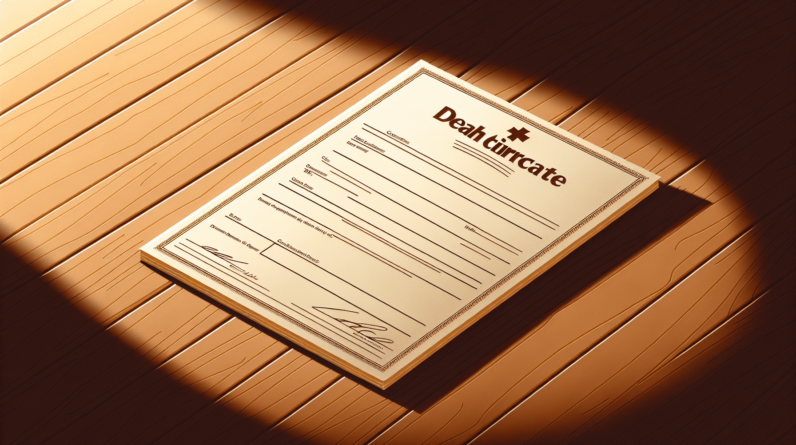
In the somber process of saying goodbye to a loved one, a question may arise: how long can you wait before cremating the deceased? The answer to this question is not set in stone, but rather depends on a variety of factors. According to experts, it is generally recommended to cremate the deceased within the first few days after their passing. However, there are circumstances where a delay may be necessary, such as religious or cultural customs, legal requirements, or the need to coordinate with family members who are far away. Understanding the factors involved in this decision can help navigate the difficult process of honoring and remembering our loved ones in the most appropriate way.
Factors Affecting Timing of Cremation
When a loved one passes away, many factors come into play when determining the timing of their cremation. Legal requirements, cultural and religious beliefs, logistical considerations, health and decomposition factors, and coping with grief all play a role in this decision-making process. Understanding these factors can help you navigate through this difficult time and make the best choice for yourself and your loved ones.
Legal Requirements
Before proceeding with the cremation process, there are legal requirements that need to be met. These requirements vary from state to state, so it’s crucial to familiarize yourself with the specific laws and regulations in your area. Some states may have mandated waiting periods before the cremation can take place, while others may have specific requirements for handling and transporting the deceased.
In addition to state laws, the coroner’s approval is often required before proceeding with cremation. The coroner’s office investigates the cause of death and may have specific guidelines that need to be followed. It’s important to give them ample time to complete their investigation and provide the necessary approval.
Permit requirements are another legal consideration when it comes to cremation. Funeral homes or crematoriums may need to obtain permits from local authorities before proceeding with the cremation process. These permits ensure that all necessary regulations and procedures are followed for the proper handling and disposal of human remains.
Cultural and Religious Beliefs
Cultural and religious beliefs also play a significant role in determining the timing of cremation. Different belief systems have varying practices and rituals surrounding death and the handling of deceased individuals. It’s important to consult with religious leaders or cultural experts to understand the specific guidelines and traditions that need to be followed.
Some cultural and religious practices may involve waiting for family members to arrive before proceeding with cremation. This allows everyone to have an opportunity to say their final goodbyes and participate in the funeral rituals. According to my research, this waiting period can range anywhere from a few days to several weeks, depending on the specific cultural or religious customs.
Logistical Considerations
Logistical considerations also come into play when determining the timing of cremation. Availability of a crematorium is a crucial factor to consider. Depending on location and local demand, there may be limited availability for scheduling a cremation. It’s important to plan ahead and secure a booking at the desired crematorium.
Funeral home scheduling is another logistical consideration. Funeral homes often handle all the necessary arrangements for cremation, including coordinating with the crematorium and obtaining the required permits. The timing of these arrangements can affect the overall timing of the cremation process.
Waiting for necessary paperwork is another logistical factor that can impact the timing of cremation. This paperwork includes death certificates and permits. It may take some time to gather all the required documents, especially if there are any delays in obtaining the necessary medical and legal approvals.
Health and Decomposition Factors
Health and decomposition factors are also important considerations when determining the timing of cremation. These factors primarily pertain to the management of the deceased’s physical condition and public health concerns.
Health considerations come into play when the deceased had a contagious disease. In such cases, it may be necessary to delay the cremation until the risk of infection has passed. Public health concerns may also come into play if there was an outbreak or if there are specific regulations in place to prevent the spread of certain diseases.
Embalming is a common practice in many cultures and can affect the timing of cremation. Embalming preserves the body, delaying the natural decomposition process. From my experience, embalming can provide families with more time to make arrangements and hold funeral services before proceeding with cremation.
The decomposition process is a natural occurrence that takes place after death. It is influenced by various factors, including temperature and humidity. Higher temperatures and humidity can accelerate the decomposition process, while cooler temperatures can slow down the process. Refrigeration can be used to mitigate the effects of decomposition and provide families with additional time to make arrangements and say their final goodbyes.
Coping with Grief and Emotional Considerations
In addition to the legal, cultural, logistical, and health factors, the timing of cremation should also take into account the emotional well-being of the grieving family and friends. Allowing time for mourning is a crucial aspect of the grieving process. It’s important to not rush the cremation process, as it may deny individuals the opportunity to properly grieve and say their final goodbyes.
Consulting with bereavement professionals can provide invaluable guidance and support during this difficult time. These professionals can help individuals and families navigate through the emotional challenges associated with the loss of a loved one. They can provide insights into cultural norms and practices, and assist in finding a balance between personal preferences and cultural traditions.
Personal and cultural preferences also play a crucial role in determining the timing of cremation. Respecting individual wishes is of utmost importance, allowing family members to honor the deceased’s final wishes. Additionally, honoring cultural traditions can provide comfort to the grieving family and help them find solace in conducting the funeral rites according to their beliefs.
Finding a balance between customs and practicality is essential when deciding on the timing of cremation. While cultural and religious practices are important, it’s also necessary to consider the practical aspects associated with the entire process. This could involve finding a compromise that respects both the cultural and practical aspects, ensuring a meaningful and timely cremation process.
In conclusion, the timing of cremation is influenced by a variety of factors. Legal requirements, cultural and religious beliefs, logistical considerations, health and decomposition factors, and coping with grief all play a role in this decision-making process. By understanding these factors and consulting with the appropriate professionals, you can make an informed decision that best respects the wishes of your loved one while also considering the practicalities and emotional well-being of those left behind.






